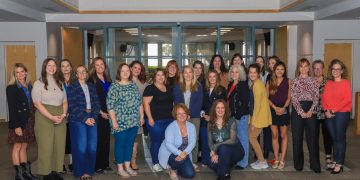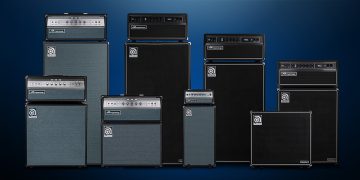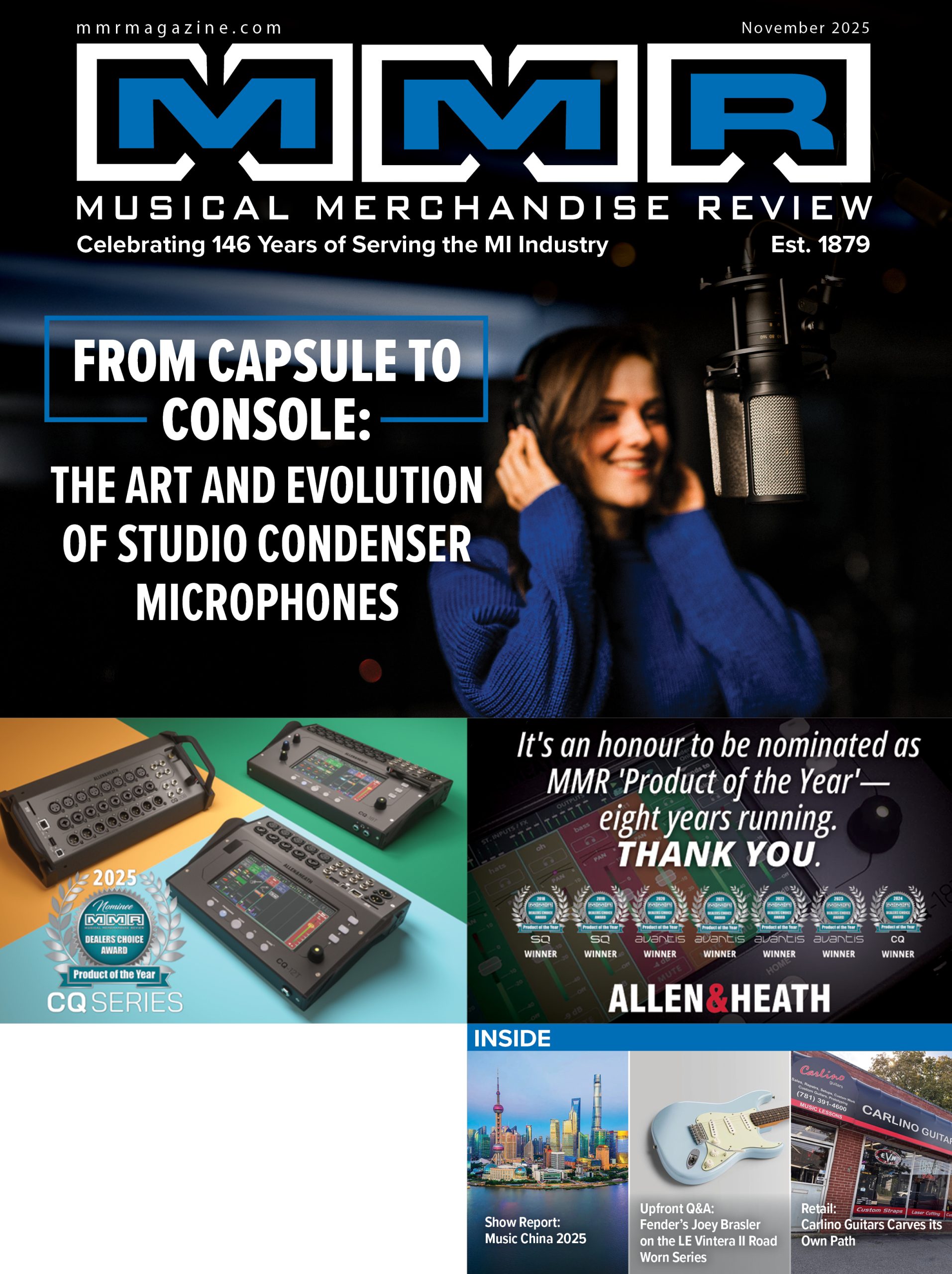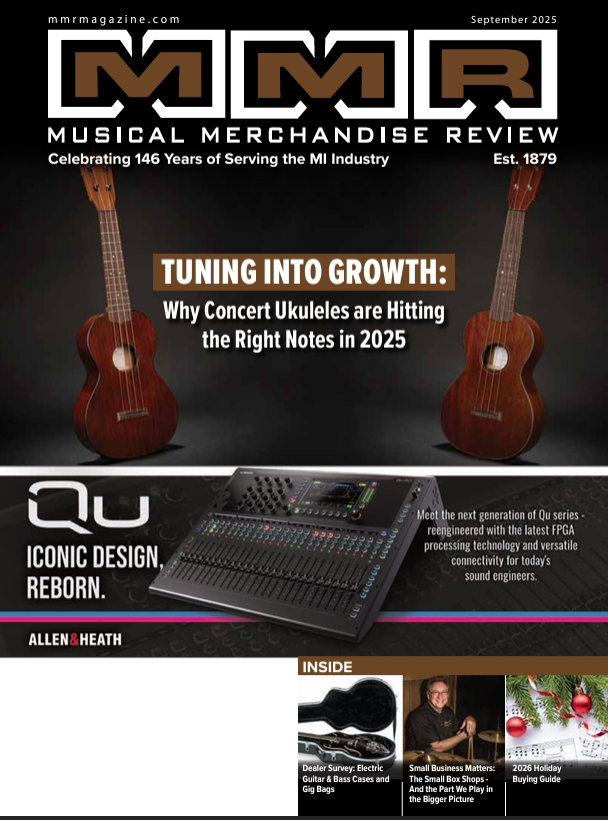 E.& O. Mari, Inc. is the world’s oldest continually family-owned and operated music string manufacturer, fielding the celebrated La Bella brand. We recently checked in with COO Lorenza Cocco to learn more about the company’s long and fascinating history, how they’ve fared during the pandemic, and what’s on the horizon.
E.& O. Mari, Inc. is the world’s oldest continually family-owned and operated music string manufacturer, fielding the celebrated La Bella brand. We recently checked in with COO Lorenza Cocco to learn more about the company’s long and fascinating history, how they’ve fared during the pandemic, and what’s on the horizon.
The company can trace its beginnings back to the mid 17th century in Italy, but the “La Bella” brand didn’t appear until the 1920s, after much of the operation had migrated to NYC. Can you talk about the origins of La Bella, specifically, and how it came about?
Brothers Emilio and Olinto Mari were some of the first people, if not the first, to properly commercialize musical strings. The company name was first “Mari Musical Strings” established in the 1910s, and began using a number of different “brands” name to delineate different instruments and also levels of quality (value line vs. premium). These names included La Bella (trademarked 1920), NuTone, La Preferita, Sweetone, and Criterion.
At some point this became confusing for consumers, so in the 1930s a board meeting was held to determine which brand had the most brand equity and would become the prominent brand name, and La Bella “won.”
E&O Mari was incorporated in NYC in 1935. What were the main reasons for selecting New York as a headquarters at the time? What did the city and immediate area offer an MI brand such as La Bella?
The company was established around 1910 as “Mari Musical Strings” which was later incorporated in the 1930s, and then eventually changed to “E. & O. Mari, Inc” to reflect the sole ownership of both brothers.
Brothers Emilio and Olinto arrived as young men in New York at Ellis Island seeking new opportunities. The Spanish Flu in Italy had killed their parents and many family members in a matter of months. They started working as laborers excavating the pillars used to build elevated subways in Queens. At night they made samples of gut strings, a craft they learned from their family in Salle, Italy – a family tradition, which started in the 1600s. They brought these samples to music stores across Manhattan, one of them being the famous Wurlitzer store which serviced many professional violin players, who fell in love with the Italian craftsmanship of their gut strings. The Wurtlizer family gave the brothers a loan to setup their own small operation in Manhattan. After decent success, the brothers could not keep up with production themselves, so Olinto went back to Lanciano, Italy to setup a factory, hiring string makers from their nearby family string-making hometown of Salle, Italy. Eventually, due to embargos and then World War II, the entire workforce at the Lanciano factory was moved to a larger factory in 1935 in Long Island City, Queens with the help of the U.S. Consulate in Naples. Around the 1940s, the production was moved from Long Island City to Astoria where it remained until 1980.
New York was a natural fit for young immigrants and the music center of the United States. At the time, New York City was home to many musicians, factories, entrepreneurs, immigrants – it was really the perfect storm for anyone wanting to create something from nothing, or in this case create a product from a very specific skill set that was in demand for the blossoming music industry. New York was also the closest point to travel to Italy by steamship, where they would travel back-and-forth from for decades to come. Eventually the brothers put down roots in Astoria, Queens, which was at the time was home to many Italian immigrants (and stores and restaurants), where they felt close to home while being thousands of miles away.
Can you talk more about the choice to close up shop in Italy and fully relocate HQ to Long Island. With and “either/or” choice at the time, why did the company select America over Italy?
In 1935, the Italo-Abyssinian War brought production in our Italian operations to a halt as sanctions were imposed in the Italian government on imports/exports. The Lanciano factory was where the majority of production was being made, so Olinto visited the U.S. consulate in Naples for a work permit for himself and all 60 employees to start making strings in New York, which was issued in a record 36 hours. The factory in Lanciano remained open thereafter to support some production, and was repurposed during WWII to make war goods, but became too hard to manage from afar after WWII, so all machinery was moved to New York.
2021 marks the 40th year of La Bella being based out of Newburgh, NY. What was behind the move to Newburgh and what about the location and facilities has made it such a good fit for such a long time?
In the 1980s, E. & O. Mari, Inc. was forced to move out of Astoria, as Long Island City was under siege by an unscrupulous labor union. In fact, many small businesses left Long Island City for the same reason. At the time, Newburgh was spearheaded by mayor Joan Shapiro who lured many businesses through an economic development initiative. Many of those initiatives disappeared shortly thereafter, but Newburgh remains a good home for La Bella, as it’s centrally located and still close to New York City. As a New York-based company, we make a very big effort to support New York suppliers when possible. Much of the wire used to make strings is made in upstate New York.
Further we do have a showroom in Brooklyn, NY, which is headquarters for our Olinto project spearheaded by vice president and fourth generation string maker Eric Cocco. We host many events there – when we’re able to, and now very responsibly – such as our annual Lords of the Low End and concerts and workshops featuring La Bella artist. Our Olinto basses are made by hand by master luthier Mas Hino and James Carbonetti.
Currently, what are the top-selling lines of La Bella strings?
Our company has sold to distributors and retailers for over 100 years to over 100 different countries, so naturally each region has its own best-sellers. In the U.S., we continue to dominate the classical guitar and electric bass string market, in addition to our line of handmade Olinto basses. In the Gulf Region, our Oud strings are extremely popular as we leverage our skill in classical guitar strings to make strings for the ancestor to the guitar. And our entire catalog including our Latin Folk sets sell very well in Central and South America. Our broad product offering allows us to have the opportunity to offer something in every single country we sell in, which is an advantage that only one other string company has other than La Bella. This also helps stabilize sales if a certain part of the world or large market is experiencing economic headwinds, or if the U.S. dollar strength poses a challenge. We’re very diversified from a product and market point of view.
As you mentioned, in addition to strings, La Bella fields both Olinto Basses. What was the catalyst behind entering the fretted instrument market? How have the brands evolved within the company?
For decades, our strings have graced the basses of the finest musicians in modern recording history. After years of working with world-famous luthiers in developing cutting-edge strings, we felt the next natural step was to introduce a bass that equally embodies that vintage tone which put La Bella on the map. When Eric Cocco (VP) worked with master luthiers Mas Hino and James Carbonetti to develop our Olinto basses, the concept of our vintage flat wound bass strings was always at the forefront of development. We’ve now sold hundreds of these basses all over the world, from professional touring musicians to everyday players, and the response has been enormous. We’re very proud producing a high-quality instrument that we know will stand the test of time, as our strings have.
The past year-and-a-half has presented numerous, once-in-a-lifetime challenges to nearly every industry and, within MI, certain segments – live sound reinforcement, for one – were absolutely decimated. Fretted instrument sales, however, soared during the 2020 lockdowns and beyond. How has the past year-plus been for La Bella?
We’ve been fortunate to see an uptick in sales since the pandemic. Given the large variety of our product catalog, we decided a few years ago to really focus on online retailers who were willing and able to carry our complete product lineup. It’s nearly impossible for a small music shop to carry our entire product offering, especially since we cater to professionals who value a high quality product that at times comes at a higher price point. When the pandemic hit, these online retailers across the globe were positioned to pick up where brick-and-mortar stores could not, which in turn boosted our sales. Also, as players went online to buy just about everything, many were introduced to our brand for the first time as we’re healthily represented on a lot of these online stores (with great product ratings!), when they would not have necessarily seen our strings on the wall at their local shop.
Any new or recent product introductions of note you’d like to draw MMR readers’ attention to?
We recently came out with the La Bella “Roadie Club” (https://roadieclub.labella.com/). It’s a free club where members get access to super limited edition handcrafted bass and guitar strings made by our string artisans in our New York factory. Given our history and skill in string making, we have tons of ancient books with hundreds of pages of string constructions and notes dating back to the 1940s with era-specific string constructions. We will revive those sets and come up with new super handcrafted strings that can only be made by very skilled machine operators, that serve a tonal purpose and might happen to also look really cool. The Roadie Club highlights our ability as 400 year old string makers, it’s not just a gimmicky marketing scheme.
Expectations for the coming months – not only for La Bella, but for the industry, as a whole?
We expect to see turther disruptions in the supply chain, inflation, and consolidation throughout the MI space. No one is “safe” and you have to stay on your toes to come up with the best way to tackle the newest headwind that presented itself today. When we were forced to close down for a few months back in March 2020, it was truly a first for a company like ours, even though we’ve been in business for 100-plus years. Even during WWII, our factory in Italy was reproposed to make condoms out of sheep gut for soldiers! While we don’t think we will be forced to shut down again, we have to accept the new normal of the unexpected and unpredictable, whether it’s delays from vendors or headwinds associated with operating a facility in a COVID-19 environment. Not all will be able to handle these challenges and this will result in closures or sales of business not willing or able to fight to stay open.




























